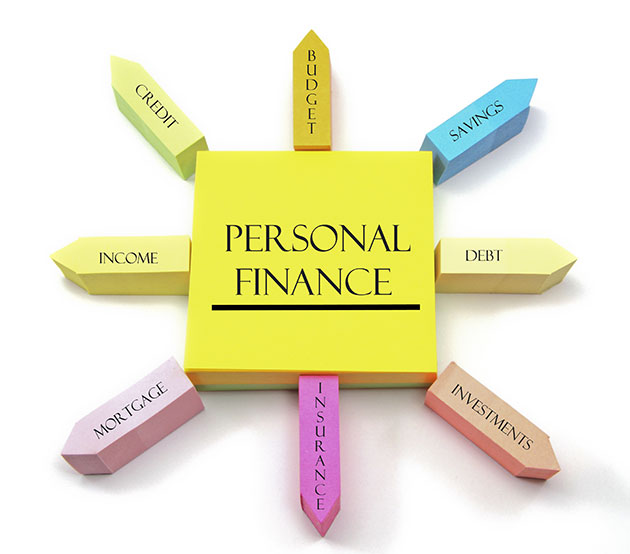Personal finance can be tricky at the best of times, and much of the commentary revolves around some of life’s biggest financial decisions or larger ticket items. However, it is important to remember that sometimes the smallest of changes can have a lasting impact, and the same goes for your personal finances. The concept of ‘hacks’ is nothing new, but it eludes to the fact that a small change in a habit can have a real impact. Some of these may sound trivial, but implementing these hacks can have very real consequences for your personal financial position.
Don’t carry your credit cards
Credit cards are responsible for all sorts of financial woes. They make it far too easy to spend money, particularly on things that aren’t necessary. By simply leaving your credit cards at home and only relying on cash, you will be more aware of what you can actually afford.
Go interest rate shopping
On all of your loans, go to the effort of shopping around each year. A small reduction in your interest rate can have significant benefits in the long term. Putting in a little bit of effort will help you achieve more free savings.
Pay yourself first
This is a well known phrase, but the importance of allocating a portion of your monthly income to be saved or invested cannot be overemphasised. Setting up an automatic transfer is the best way, so that it just happens without you having to do anything. Even a small amount each week will add up to a significant amount over time.
Keep your savings in an offset account
If you have a mortgage, keep your savings in an offset account. This will reduce the amount of interest that you are paying over the course of your loan, which is far more beneficial than earning a couple of percent from a savings account (as the interest rate on your loan will be far higher than the interest rate of your traditional savings account).
Pay for tax deductions on your credit card
Tax deductions are an often overlooked opportunity to get something back from the government. The Australian Taxation Office publishes a guide to allowable deductions and there are many things which can be claimed. Many consumers lose their receipts and end up not being able to claim their allowable deductions, so putting these items on your credit card can act as proof of purchase.
Break your spending habits
Sometimes all it takes to change up your financial situation is to break bad spending habits. The best way to do this is to commit to not spending for a period of time and your brain will eventually break out of its reliance on spending. It is also a great opportunity to see what types of things you actually really do need to spend your money on.
Cook more
Eating out is a huge burden on your bank account. By simply buying ingredients and taking the time to cook for yourself at home, you will save thousands of dollars. The other fantastic benefit of course, is that you will likely be healthier for it.
Be a smart shopper
There are times when you will need to shop for things such as clothing or appliances. However, don’t get sucked into sales or email newsletters. Take the time to shop around and wait for the real sales as these come around a lot more often than they used to. Savvy shoppers also price search and engage in price matching so as to get the best possible outcome.
Cut out unnecessary bills
Look through your bank and credit card statements and identify what you regularly spend money on. Is that monthly Netflix subscription really necessary? Are you still using all the things you pay for on a regular basis?
Don’t buy expensive household products
Cleaning products can add up at the supermarket checkout. What many people don’t realise is that there are other ways to clean your home and these are often less toxic than fancy products. Lemon is a great steriliser and vinegar is a great general purpose cleaner. For more ideas on what you can make at home instead of buying, check out this article.
Keep your wardrobe neutral
Fashion can uproot many people’s financial situation, as following trends means they need to keep updating their wardrobes and inevitably, this has flow on effects to shoes, accessories and the like. By keeping your wardrobe neutral, you will always be timeless and you’ll never have problems matching outfits.
Stop drinking alcohol
Alcohol is expensive, even if you just drink socially. By the time you add up a night out, you are looking at hundreds of dollars spent on drinks. By removing alcohol, you will not only save a significant amount of money, but your body will also thank you for it.
Buy in bulk
When buying things that can be kept, such as toilet paper, canned tomatoes and other long life products, consider buying in bulk to get the best price.
Make a shopping list
Before you go to the supermarket, plan out exactly what you need to buy, so that you don’t waste time roaming the aisles and more importantly, you don’t waste money on items that are not needed. Stick to the task at hand.
Get a housemate
If you rent or own your home and are struggling, consider renting out a room to supplement your income. House sharing is common nowadays and some additional company may not be a bad thing.
Pay insurance up front
Things like car insurance can often cost less if you pay upfront rather than monthly. Check with your providers to see if they’ll give you a discount on upfront payments.
Keep a coin jar
A simple jar at home or at the office will allow you to add stray coins and loose change. Over time, this will accumulate into a not-so-insignificant amount. It also encourages you to keep your loose change rather than add it to the tip jar every time you visit a café.
Be energy wise
Energy costs are a huge burden on a household, so being smart with your lighting and only purchasing energy efficient appliances can make a big difference to your total bills.
Use coupons
Using coupons has become an acceptable thing with the advent of group buying sites and deal sites or apps. Take advantage of these wherever you can and you’ll end up saving lots.
Some of these hacks are extremely easy and with a little discipline, you can change your habits. The smallest changes can add up to significant differences and when you apply multiple small changes, you will see an even larger impact.


